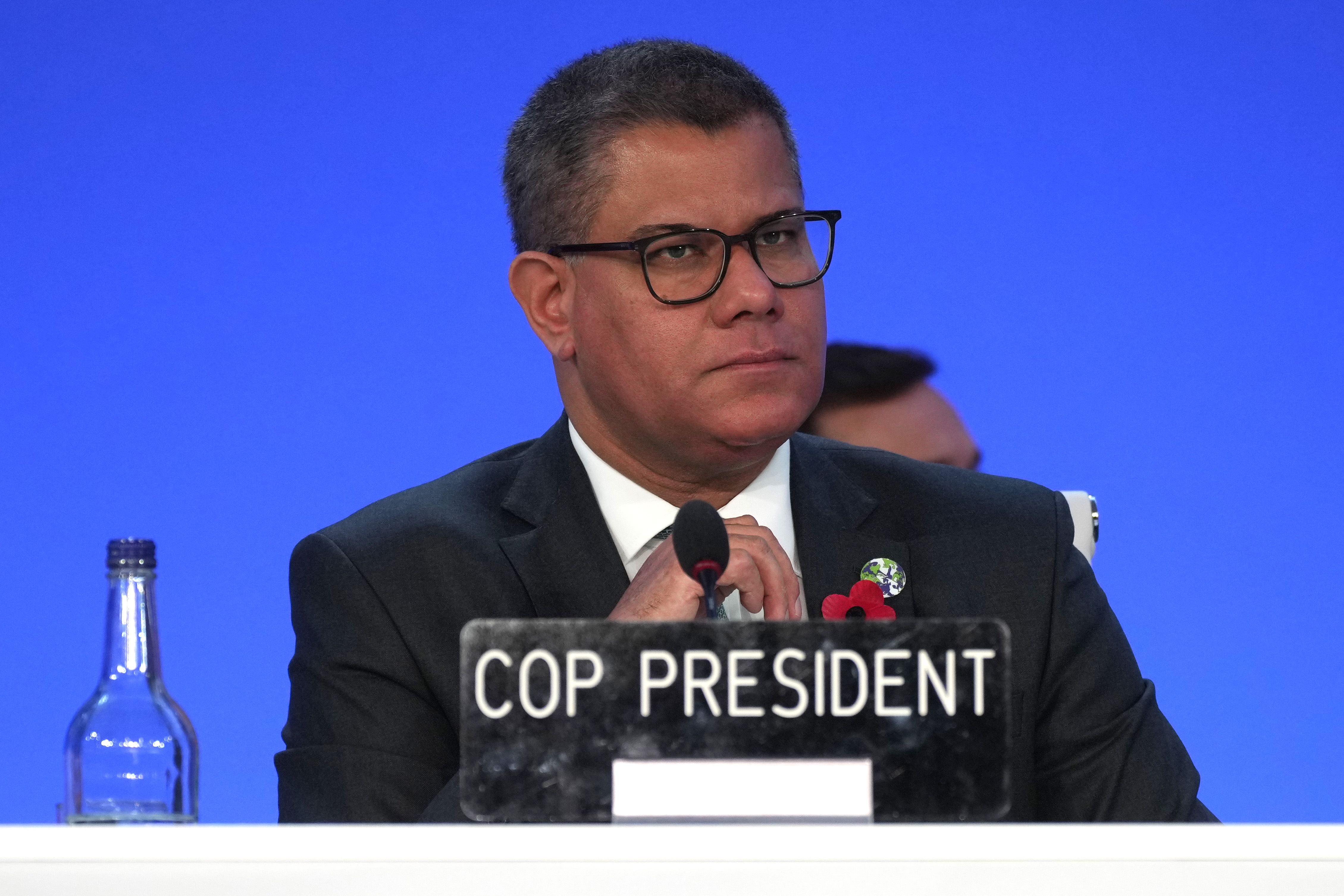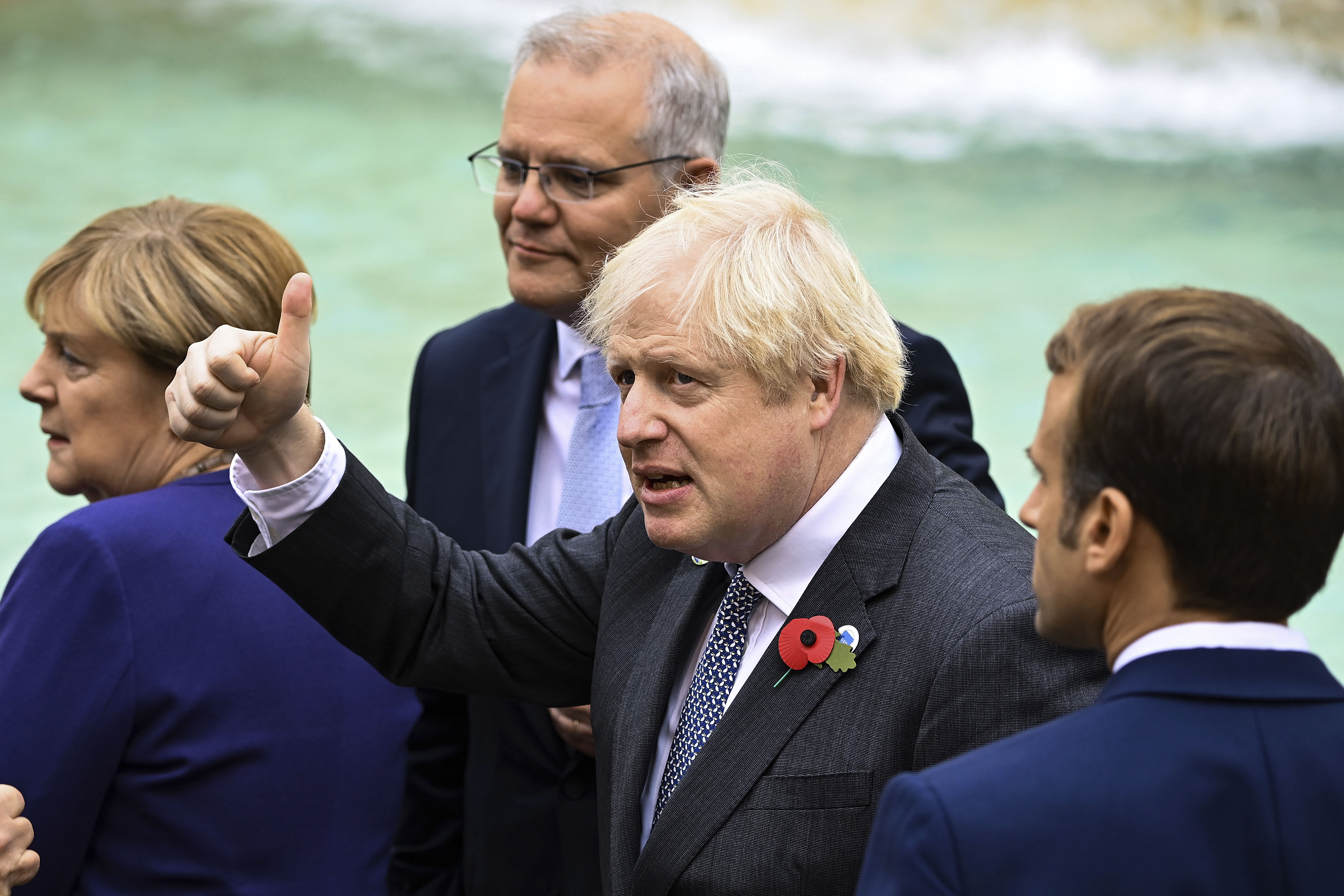The UN climate summit in Glasgow has opened with appeals for action and prayers, kicking off two weeks of intense diplomatic negotiations by almost 200 countries on how to tackle the common challenge of intensifying global warming.
Following the opening gavel on Sunday, leaders from around the world will gather in Scotland's biggest city on Monday to lay out their countries' efforts to curb greenhouse gas emissions and deal with the effects of climate change.
Negotiators will push nations to ratchet up their efforts to keep global temperatures from rising by more than 1.5 degrees this century compared with pre-industrial times.
EXPLAINED: What is COP26 and why does it matter?

The newly opened summit remains "our last, best hope to keep 1.5 in reach," said Alok Sharma, the British government minister chairing the Glasgow talks, known as COP26.
Scientists say the chances of meeting that goal, agreed to in the landmark deal closed at the 2015 Paris climate accord, are slowly slipping away.
The world has already warmed by more than 1.1 degrees and current projections based on planned emissions cuts over the next decade are for it to hit 2.7 degrees by the year 2100.
The amount of energy unleashed by such planetary warming would melt much of the planet's ice, raise global sea levels and greatly increase the likelihood and intensity of extreme weather, experts warn.
"We can move the negotiations forward and we can launch a decade of ever increasing ambition and action," Mr Sharma said at the opening ceremony.
"We can seize the enormous opportunities for green growth for good green jobs, the cheaper, cleaner power."
He noted that China, the world's biggest emitter of greenhouse gases, had just raised its climate targets somewhat.
"But of course we expected more," he told the BBC earlier Sunday.
READ MORE: Prince Charles to world leaders on climate: 'It is quite literally the last-chance saloon'
https://twitter.com/BBCPolitics/status/1454742357367209984At the Vatican on Sunday, Pope Francis appealed to the world's people to pray that world leaders' realise the suffering of the Earth and the poor as the climate warms.
World leaders gather for G20 summit
In Rome, leaders of the G20 nations accounting for 75 per cent of greenhouse emissions were negotiating on what commitments they're willing to make to contain rising global temperatures.
They made a compromise commitment to reach carbon neutrality "by or around mid-century" as they wrapped up a two-day summit laying the groundwork for COP26.
According to the final communique, the Group of 20 leaders also agreed to end public financing for coal-fired power generation abroad, but set no target for phasing out coal domestically — a clear nod to top carbon polluters China and India.
The G20, which represent more than three-quarters of the world's greenhouse gas emissions, had been looking for common ground and solid commitments on how to reduce emissions while helping poor countries deal with the impact of rising temperatures.
Without them, momentum could be lost for the larger annual talks in Glasgow.
READ MORE: Morrison and Macron meet face-to-face for the first time since submarine deal fallout

US climate envoy John Kerry warned last week of the dramatic impacts that exceeding the 2015 Paris accord's goal would have on nature and people, but expressed optimism that the world was heading in the right direction.
The United States is currently the world's second biggest climate polluter, though historically it is responsible for the biggest amount of carbon dioxide in the atmosphere.
India, the world's third biggest emitter, has yet to follow China, the US and the European Union in setting a target for reaching net zero emissions. Negotiators are hoping India's Prime Minister Narendra Modi will announce such a goal in Glasgow.
"We need all of the G20 to come forward," said Mr Sharma.
"The G20 represents 80 per cent of global emissions and that's why every country matters, but the G20 matters particularly."
Some of the issues being discussed during the talks have been on the agenda for decades, including how rich countries can help poor nations tackle emissions and adapt to a hotter world. The slow pace of action has angered many environmental campaigners, who are expected to stage loud and creative protests during the summit.
Also speaking in Rome Sunday, Prince Charles urged world leaders to heed the "despairing voices" of young people who will bear the brunt of climate change.
The opening day of the talks is expected to focus on procedural issues. One big worry is that not all the delegates will be able to meet in person, as the venue and room capacities have been limited due to COVID concerns.
from 9News https://ift.tt/3bunh8C
via IFTTT


0 Comments